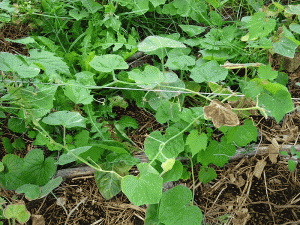Empowering leadership
2016 ADVANCING WOMEN IN AGRICULTURE CONFERENCE

WOMEN’S INITIATIVES ARE on the rise with more women involved in a wide variety of roles in the agriculture industry than ever before. Over 430 women attended the Advancing Women in Agriculture Conference in Toronto at the beginning of October.
The Advancing Women in Agriculture Conference is a professional development opportunity for women in the agriculture industry. Attendees had the opportunity to meet like-minded individuals, listen to speakers, and network.
“The opportunities to have a face-to-face meeting with other women who share your experiences can be few and far between. The number-one accolade we hear is that women who attended the conference were able to make strong connections and feel part of a larger community,” says Iris Meck, founder and organizer of the Advancing Women in Agriculture Conference.
The conference speakers included a variety of individuals working in Canadian agriculture along with notable speakers and New-York Times bestselling authors from across North America. A number of themes emerged during the conference which were important take-aways for attendees.
NETWORKING
A strong peer network was identified as significant for women in the agriculture industry. Personal growth and professional development work best when learning from others through networking. Leveraging other people’s experiences and learning from them is a great way to grow.
Marie-Hélène Budworth of the School of Human Resource Management discussed how being a savvy networker is critical. Networking is an imperative skill to learn and continuously develop.
“Generosity and kindness lead to power in social networking,” says Budworth while noting that even if you are not the most outgoing person, stepping back, listening, and being kind is a useful networking skill to develop.
“Networking is as much about creating value, as it is about claiming value,” says Budworth. Individuals should be prepared to use their social networks. They must reach out and ask for help because networking is only as valuable as the connections made and used.
COLLABORATION
Networking shows the benefits of working in a collaborative environment. This is not exclusive to personal growth, but also the overall agriculture industry. Trish Jordan of Monsanto Canada spoke about how to advocate for agriculture and emphasized the need to use a collective approach to telling agriculture stories.
“Showing collaboration changes perspectives,” said Jordan on talking to consumers and sharing positive stories about the industry. To change viewpoints of an urban audience on agriculture, the whole industry needs to work together.
The collaborative approach can be extended to leadership. Elysia Vandenhurk of Three Farmers Products in Saskatoon spoke on the topic of Getting Comfortable with Being Uncomfortable. She discussed how the choices she made in her business impacted the companies brand and growth.
“Delegate, collaborate, and ask for help,” said Vandenhurk on the keys things that make her business successful.
A good leader and business owner will realize that they cannot run the whole business on their own. Collaboration helps to lighten the work load and make employees feel invested in the organization.
ATTITUDE
Jordan also outlined that defensiveness or over-powering the conversation will not create a win when discussing difficult topics. Instead, Jordan suggests listening first, asking questions, and then finding a common ground. This opens the door to share stories and experiences in a compassionate way.
“People don’t care what you know, until they know that you care,” says Jordan on interacting with consumers.
This sentiment applies to advocating for agriculture, but also to leadership and working in a primarily male dominated industry.
Deb Stark, the past deputy minister of agriculture, food and rural affairs, encourages women to “model the inclusiveness you want to see in others and own boldness as a leader and follower”. However, also be accessible to employees.
Sophie Perreault, executive vice president and chief operating officer, Farm Credit Canada, discussed her journey and how being an unreachable leader made it difficult for her as a project manager. She had to learn to delegate and trust her employees to create a collaborative workplace.
“Nobody is perfect. Worrying about not being perfect…makes you inaccessible and prevents working with others,” says Perreault. The strongest leaders work with employees and are models of inclusiveness.
GRAIN FARMERS
These themes show things cannot be done in a vacuum. Whether it is in the boardroom or while educating the public about agriculture, women and the agriculture industry need to work together.
Grain Farmers of Ontario also has women’s initiatives to get more female farmer-members involved with the organization. A focus group was held during the annual March Classic conference in London, which identified key issues and topics that female farmer-members wanted support or education on.
Taking this information, Grain Farmers of Ontario developed the Womens’ Grain Symposium that ran November 22 and 23. It was an opportunity to meet and network with other women involved in the grain industry, and learn from one another. Speakers discussed how to overcome challenges to be successful in the agriculture industry, personal branding, the importance of peer networks and opportunities to advocate for agriculture.
If you are interested in being involved in future women’s initiatives with Grain Farmers of Ontario, contact Steve McCabe, manager of member relations, at 226-979-5581 or smccabe@gfo.ca. •








